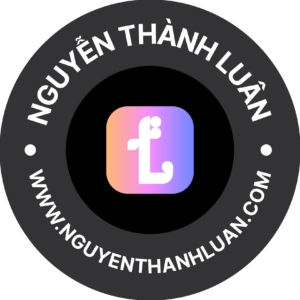Understanding Informational Queries in SEO
Ever wonder why some websites seem to dominate the search engine results while others struggle to even make it to the second page? Well, let me tell you a little secret: it’s all about understanding and leveraging informational queries. Yep, that’s right. Informational queries are the bread and butter of organic traffic, and if you’re not using them to your advantage, you’re missing out on a massive opportunity. So, buckle up, because we’re diving deep into the world of informational queries and how they can skyrocket your site’s visibility.
What Exactly is an Informational Query?
An informational query is when someone hits up Google with the sole purpose of finding information, facts, or knowledge. It’s not about buying something or going somewhere; it’s about satisfying that burning curiosity or solving a problem. Google gets it, which is why they classify these searches as either “Know” or “Know Simple.” And let me tell you, these queries are everywhere. In fact, most searches are informational in nature, making them crucial for driving organic traffic to your site.
Wondering how to spot an informational query? Look for modifiers like “Why,” “How,” “Who,” and so on. But even without these, search engines are smart enough to recognize the intent behind a query. So, whether someone’s typing in “how to bake a cake” or just “cake recipe,” they’re after information, and that’s your cue to step in and provide it.
Why Should You Care About Informational Queries?
Now, you might be thinking, “But Alex, won’t these queries just bring in looky-loos who aren’t ready to buy?” And you’re not wrong. Informational queries are less likely to result in immediate conversions. But here’s the thing: they’re gold for building authority and increasing brand awareness. When you provide valuable, high-quality information, you establish yourself as an expert in your field. And trust me, that trust and credibility will pay off in the long run.
Plus, there are ways to monetize informational content. Think affiliate links, Google AdSense, and ad space. So, while you might not see instant sales, you’re setting yourself up for future earnings. It’s a long game, but it’s one worth playing.
Types of Informational Queries
Informational queries can be broken down into two main categories: problem-solving and research-related information. The former is all about helping users tackle specific issues or answer burning questions, like “how to fix a leaky faucet.” The latter, on the other hand, is more about gathering knowledge or exploring a topic, like “history of the internet.”
These queries often take the form of questions or use specific modifiers. So, when you’re crafting your content, keep an eye out for these patterns. They’re your roadmap to creating content that not only ranks well but also truly helps your audience.
Finding and Optimizing Informational Keywords
Alright, so you’re sold on the power of informational queries. But how do you find the right keywords to target? Easy. Use keyword research tools like Ahrefs, SEMrush, or good ol’ Google Keyword Planner. These tools will help you uncover the questions and topics your audience is searching for.
But don’t stop there. Take a look at the search engine results pages (SERPs) for your target keywords. What kind of content is ranking? Is it blog posts, articles, or maybe even featured snippets? This will give you valuable insights into what Google deems relevant and helpful for those queries.
When it comes to optimizing for informational queries, remember: it’s not just about stuffing your content with keywords. You’ve got to understand and address the user’s intent. What are they really looking for? How can you provide the most valuable, relevant information possible? That’s the key to ranking well and keeping your audience engaged.
Creating High-Quality Informational Content
So, you’ve got your keywords, and you know what your audience is searching for. Now it’s time to create content that not only ranks but also wows your readers. Here’s how:
- Keep it simple and user-friendly: Your content should be easy to read and understand. Break up long paragraphs, use subheadings, and incorporate visuals to keep things engaging.
- Provide valuable information: Don’t just skim the surface. Dive deep into your topic and provide actionable insights that your audience can use.
- Engage your readers: Use storytelling, anecdotes, and even a bit of humor to keep your audience hooked from start to finish.
- Back it up with credible sources: If you’re making claims or providing data, make sure you’ve got the receipts to back it up. This builds trust and authority.
And don’t forget about those headings! Optimize them with your target keywords and user-centric language. This not only helps with SEO but also makes your content more navigable and relevant to your audience.
Wrapping It Up
Informational queries might not lead to instant sales, but they’re the foundation of a strong, authoritative online presence. By understanding and optimizing for these queries, you can drive organic traffic, build trust with your audience, and set yourself up for long-term success. So, what are you waiting for? Start creating that killer informational content and watch your site’s visibility soar. And hey, if you’re hungry for more SEO tips and tricks, be sure to check out our other resources. We’ve got plenty more where this came from!





